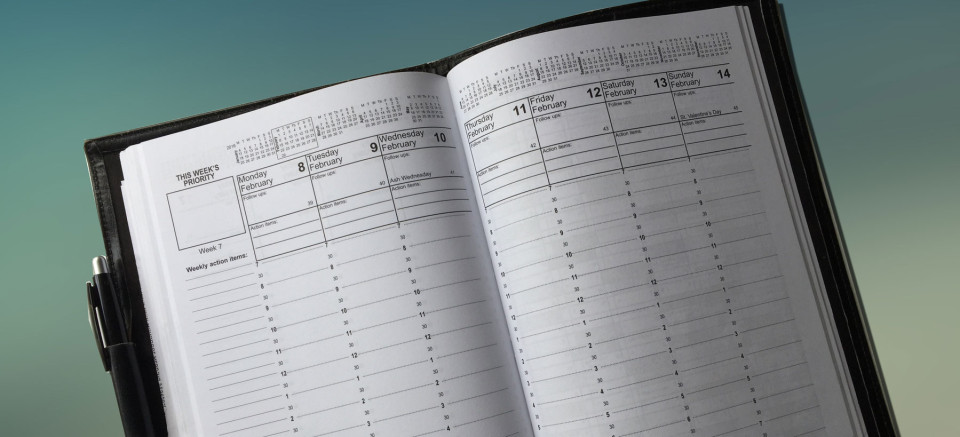
Deadlines can become your lifelines.
Without deadlines, efficiency decreases and productive results are diminished. Opportunities are missed, projects are delayed, costs are increased, and procrastination is enabled. Without deadlines, Parkinson’s Law takes effect, and the tasks or activities take longer to complete.
That’s why I recommend that people should schedule specific periods of time in their planner for important activities – blocks of time with both a beginning time and an ending time. The ending time is the deadline. Deadlines don’t cause stress; only unrealistic deadlines cause stress. That’s the reason I also recommend that you allow up to 50% more time than you think the task will take.
I think it is odd that people feel it is impossible to predict that they will have time on Thursday morning between 10 AM and 11:30 AM to work on a major project or complete a task. And yet they think nothing of committing themselves to attend a meeting or sit with a supplier or participate in a performance review with the boss or even attended their child’s soccer game at that time.
If it is important enough to you or the company, you can commit to it. That’s the reason I called “To do” lists intentions, and scheduled blocks of time commitments. Deadlines don’t cause urgency; deadlines help prevent urgency by allowing you to pace yourself by knowing how much time you have available to complete a task, and by starting and managing your time accordingly. Things become urgent when you either have no deadline or ignore it.
I won’t dwell on the “good old days” as some octogenarians are prone to do. In fact some of the deadlines we were forced to adhere to were rather ridiculous by today’s standards. We had deadlines to be home after school and home from play at night at specific times. We had a deadline for bedtime, a deadline for arriving at school and so on. When we entered the job market as adults we had deadlines for starting work in the morning, returning from afternoon breaks, and for submitting reports. We had no trouble with self-imposed deadlines because we grew up with deadlines.
Today things are different. We have flexible working hours and coffee breaks and no more “three lates and you’re disciplined” situations to deal with. There’s nothing wrong with that, because we are now more concerned with results, and not the number of hours worked. And if kids are continually late for school, we have research to prove that changing school hours will solve the problem. And if they’re late with reports, we recognize that all children are not alike, and adjust our teaching methods accordingly.
In retrospect, both our parents and bosses were too strict, and a lot of the deadlines were unnecessary. But one thing they did was to provide the know-how and self-discipline to set deadlines on our own. We learned as children that we couldn’t finish our homework by bedtime if we spent most of the time playing marbles. And today that would translate into the knowledge that we can’t get our project done by Thursday if we spend most of the time checking email or searching the Internet.
Deadlines can be lifelines – perhaps not a matter of life or death (although that’s possible); but in reducing stress, increasing personal productivity and avoiding some of the problems mentioned in the first paragraph.
As we age, and certainly as we approach or pass the average life expectancy, we become more aware of the importance of getting things done on time. We won’t want to die without a Will or without having spent adequate time with our grandchildren or not having taken that cruise or trip out West or not having made clear to our loved ones how much we love and appreciate them.
That will be our final deadline.


Recent Comments